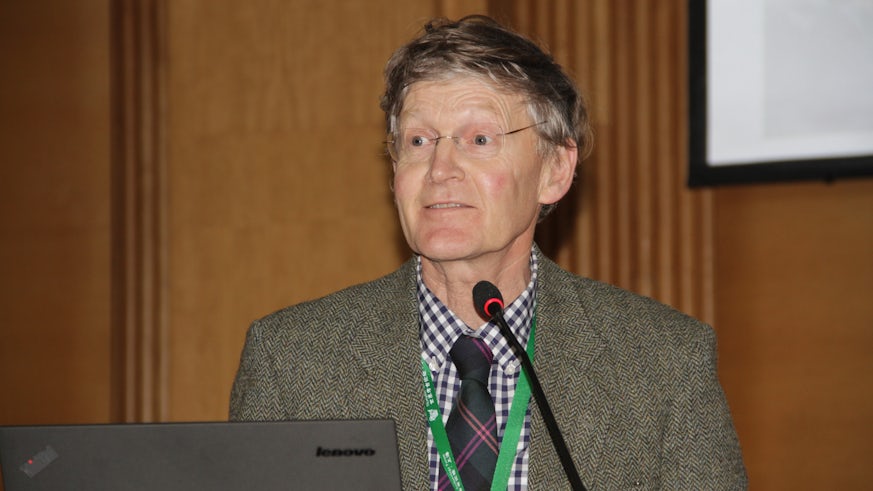Game-changing shift in understanding European pre-history
21 January 2016

A pioneering research project co-directed by a University archaeologist and Historic England has won an international award for its game-changing shift in the understanding of European prehistory
Distinguished Research Professor Alasdair Whittle collected the Shanghai Archaeology Forum Research Award (SAF) for ‘The Times of Their Lives’ on behalf of a multi-national team at the second Shanghai Archaeology Forum (14-16 December 2015).
Professor Alasdair Whittle of the School of History, Archaeology and Religion and Professor Alexandra Bayliss of Historic England (formerly English Heritage) jointly lead the 2.5 million Euro project funded by the European Research Council.
The Times of Their Lives is one of an illustrious list of eleven projects awarded the 2015 Shanghai Archaeology Forum Research Award. SAF awards are made on a biennial basis in the categories of Field Discovery Award and Research Award. In the latest round the winners were selected from 93 nominations by international expert panel.
Established in 2013, the Shanghai Archaeology Forum Awards recognize individuals and organisations that have achieved distinction through innovative, creative and rigorous work in relation to our human past, and have generated new knowledge that is of particular relevance to the contemporary world and our common future.
The game-changing project The Times of Their Lives is leading to a re-thinking of the European Neolithic, the prehistoric period known for the first farming societies between 7000BC and 2500BC, succeeded by the Bronze Age.
By breaking with the previous tradition of simply subjecting radiocarbon dates to visual inspection, resulting in spans of centuries at best, the project applies Bayesian statistics in a formal chronological framework to reveal the lives of our ancestors to much finer timescales down to lifetimes and even generations.
As well as using samples from ongoing and recent excavations, the five-year project has also proved successful in drawing upon the wealth of data in established archives, sampling case studies from England, France, Germany, Hungary, Malta, Poland, Romania, Scotland, Serbia, Spain and Switzerland.
Professor Whittle says: “The project is an ambitious attempt to take the ‘pre’ out of prehistory. It is not easy to put multi-scalar perspectives into practice. But armed with this approach, and exploring sample choices to the full, we believe that archaeologists everywhere can leave fuzzy prehistory behind and in so doing reveal the web of connections and successions that made up past lives, offering our best ever chronicles for peopling the remote past.”
Head of Scientific Dating at Historic England, Professor Bayliss says: “Taking up farming was not inevitable, it was choice made by people in the past at specific times and in specific places. Refined chronologies allow us to recognise those choices and see how they connected across time and space, putting the people back into prehistory.”